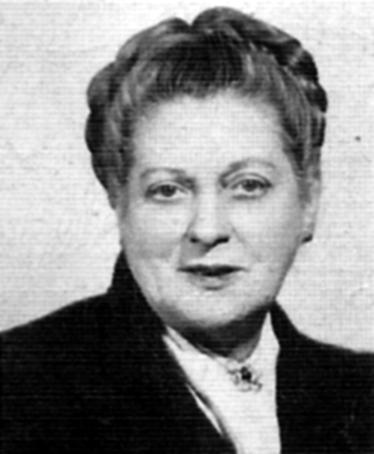

 Balbina
Pi Sanllehy (1896 - July 24, 1973) was one of the most active women militants
within the Spanish libertarian movement from the 1920s onwards, alongside
Rosario Dulcet, Lola Ferrer etc.
Balbina
Pi Sanllehy (1896 - July 24, 1973) was one of the most active women militants
within the Spanish libertarian movement from the 1920s onwards, alongside
Rosario Dulcet, Lola Ferrer etc.
She was born at San Baudillo de Llobregat (Catalan: Sant Boi di Llobregat) in 1896. A textile worker, she joined the CNT in 1917 and in the same year was a delegate of the local federation of Sabadell of the CNT and spoke at her first meeting alongside Angel Pestana. In January 1918 from the 23rd to the 28th she was involved in the strikes against rising prices alongside another anarchist Emilia Claramunt Cervera.
In the following years she became a noted orator with Dulcet and Ferrer and conducted a speaking tour of the Catalan region with them, in particular the Llobregat, the Vallés and the Bergueda areas- during the campaign for activists deported to the Mola fortress at Mahon on Minorca (1920) – and then Upper Llobregat, the Panadés and Cartagena (1923). She took an active part in opening the CNT to women and also had an active role in the ateneos and the workers’ theatre groups.
She was imprisoned following a speech she delivered at the cinema of Monte Clot, which was published in Solidaridad Obrera and she suffered further spells inside over the course of the years.
According to some sources she took part in the regional plenary meeting held in Lerida (Catalan Lleida) in 1923. In this period she contributed to several libertarian papers including Nuestra Voz (Barcelona, 1928-1930) and Solidaridad Obrera under the pseudonyms of Margot and Libertad Caida.
During the years of pistolerismo, when the bosses employed gunmen to murder over 200 people connected to the workers’ movement, she took part in the Mujeres Republicanas del Círculo Republicano Federal which campaigned against and publicised the repression. From 1931 and the founding of the Republic she supported the most radical anarchist groups within the movement. As an experienced spinner, she embroidered the first flags and banners for the CNT and FAI.
With the Civil War she found herself in disagreement with the orientation of the CNT towards involvement in the government and she formed a group the Agrupación Femenina Anticlerical which carried out a propaganda drive. In these years she split with her partner the anarcho-syndicalist Gonzalo Soler because of his orientation towards the reformist wing of the CNT, the Treintistas. Soler later moved to the Stalinist PSUC (United Socialist Party of Catalonia). Their daughter, the singer Teresa Rebull, became a member of the POUM.
With the defeat of the Republic, she was one of those who remained in Spain in hiding. In the early 1960s she moved to France. She took an active part in the work of the CNT in exile in Paris and in Toulouse and in the cultural and theatrical activities of International Antifascist Solidarity (SIA).
Afflicted by a serious illness, she abandoned activism in 1970, moving to Banyuls, near the border with Spain, where she died of a heart attack on 24th July 1973.
My published books: